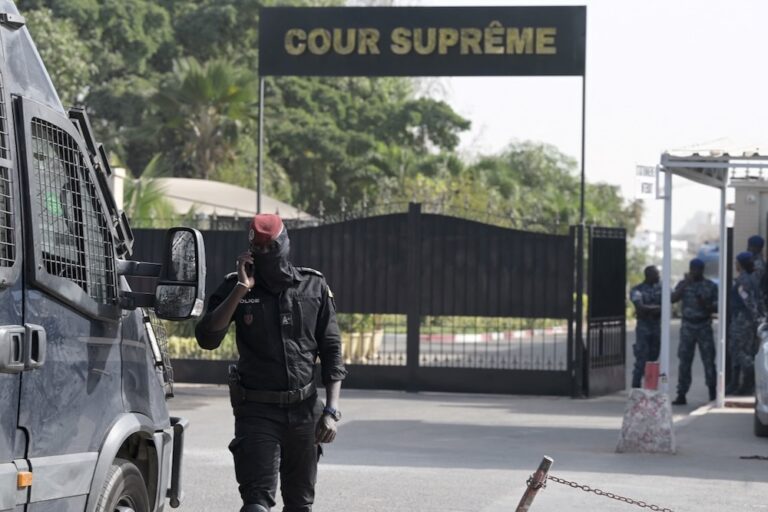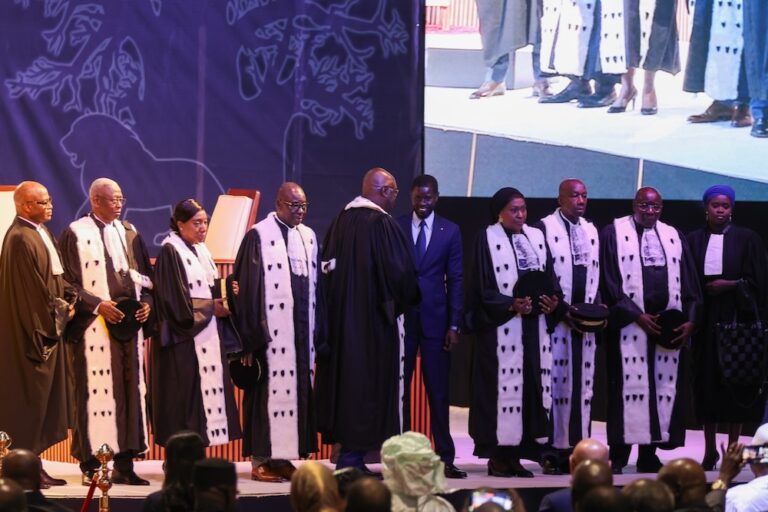Following the attack on Alioune Tine and Oumar Diallo, Human Rights Watch calls for the government to allow peaceful demonstrations and end threats against activists.
(Human Rights Watch/IFEX) – Brussels, June 24, 2011 – The Senegalese government should promptly investigate the violent assaults on the human rights activists Alioune Tine and Oumar Diallo during a June 23, 2011 demonstration, and prosecute those responsible, Human Rights Watch said today. Human Rights Watch called on the government to allow peaceful demonstrations and to end threats against Tine and other activists.
Tine is the secretary-general of the African Assembly for the Defense of Human Rights (Rencontre africaine pour la défense des droits de l’homme, or RADDHO), a prominent Senegalese human rights organization. During a demonstration before the Senegalese National Assembly against a controversial constitutional amendment regarding presidential elections, youth from President Abdoulaye Wade’s Parti Démocratique Sénégalais (PDS) identified Tine and brutally beat him and Diallo, Tine’s RADDHO colleague, before other demonstrators pulled them away to safety. Both men were hospitalized.
“It’s deeply disturbing that one of Senegal’s leading voices on human rights would face this kind of brutality,” said Daniel Bekele, Africa director at Human Rights Watch. “Senegalese authorities should not only find the attackers, but also investigate whether state authorities encouraged or ordered the attack.”
On June 22, Prime Minister Souleymane Ndéné Ndiaye publicly disparaged Tine in an interview that appeared on Senegalese radio and in print.
(. . .)
Earlier on the morning of June 23, security forces using teargas, clubs, and water cannons had dispersed demonstrators, including Tine and Gadio. Security forces should not use unnecessary or excessive force against peaceful demonstrators, Human Rights Watch said.
Prime Minister Ndiaye’s public remarks about Tine the day before the attack heighten concerns of possible government involvement, Human Rights Watch said. He told the media: “Here is someone who has been in charge of an NGO [nongovernmental organization] for 20 years, yet no one knows how it operates…. He comes and goes depending on the interests he pretends to defend. Right now, he sports the opposition’s colors and sometimes even our colors.”
Ndiaye also referred to human rights activists more generally as “hypocrites who are afraid to assert themselves.” In a June 22 article in Senegal’s L’Observateur, the director general of taxes, Amadou Bâ, threatened to withdraw the tax-exempt status of nongovernmental organizations that “failed their mission,” and Foreign Affairs Minister Madické Niang was reported to have considered suspending some organizations’ registration or host-state agreements.
( . . .)


